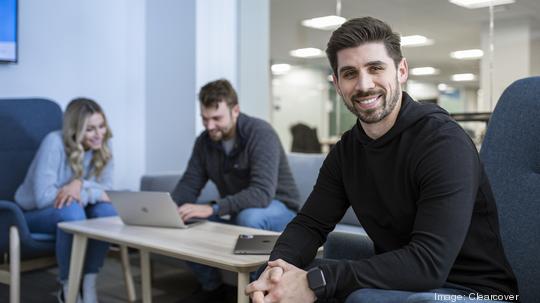
One Chicago startup is helping employees combat burnout with an interesting new benefit: a four-day workweek.
Clearcover, a fast-growing startup that raised $200 million earlier this spring, has given its more than 300 employees the option to work just four days a week during the months of July and August. In company surveys, Clearcover employees reported that the toll of the pandemic and the complexities of remote work were resulting in increased stress and the need for more mental health support, CEO Kyle Nakatsuji said. So to help workers lower their stress levels, Clearcover opted for three-day weekends this summer.
"Burnout was a real thing," he said. "We were really productive as a company and people were working quite hard, but life was harder than it used to be in many cases. Working from home was a bigger challenge for a lot of people."
The four-day workweek, a plan hatched by Clearcover's senior VP of people Vikki Caruso, is an opportunity to help people recharge after a difficult year and a half and "sharpen the axe in advance of a lot of work to do coming out of the summer," Nakatsuji said. The startup is also offering employees monthly mental health workshops, access to one-on-one counseling sessions, and morning and afternoon yoga classes.
Clearcover, a car insurance startup that's built a platform that uses artificial intelligence to make custom car coverage recommendations to customers, has raised $329 million in total funding to date. Nakatsuji declined to comment on Clearcover's valuation after its last round, but Reuters reported that the company is worth over $1 billion.
Clearcover has added more than 200 employees since the start of the pandemic, Nakatsuji said, and it plans to add another 100 in the next six to nine months.
Nakatsuji said he doesn't expect productivity to decline at the company this summer. To make that happen, he said employees are expected to be "intentional about how they spend their time" by auditing their calendars and avoiding unnecessary meetings.
"The expectation is we’ll continue to be very productive as an organization, and in order to do that in four days you’re going to have to be very conscious of how you’re spending your time," he said.
Nakatsuji added that while the four-day workweek is intended for employees' mental health, offering creative benefits to workers is also important in attracting tech talent.
"The market for talent is really, really competitive," he said. "It's more competitive than ever. Certainly having programs like this helps, in terms of making the company attractive."
The four-day workweek isn't an entirely new concept. About 85% of workers in Iceland have the option to work four days a week. Unilever’s New Zealand offices are currently testing a year-long four-day workweek. And in the U.S., crowdfunding company Kickstarter said it also plans to test a four-day workweek.
In four-day workweek studies in Iceland, researchers have found that productivity remained the same or improved in the majority of workplaces.
When asked if Clearcover would consider the benefit beyond this summer, Nakatsuji didn't rule it out.
"We’ll evaluate the success of the pilot and let the data speak for itself," he said.



